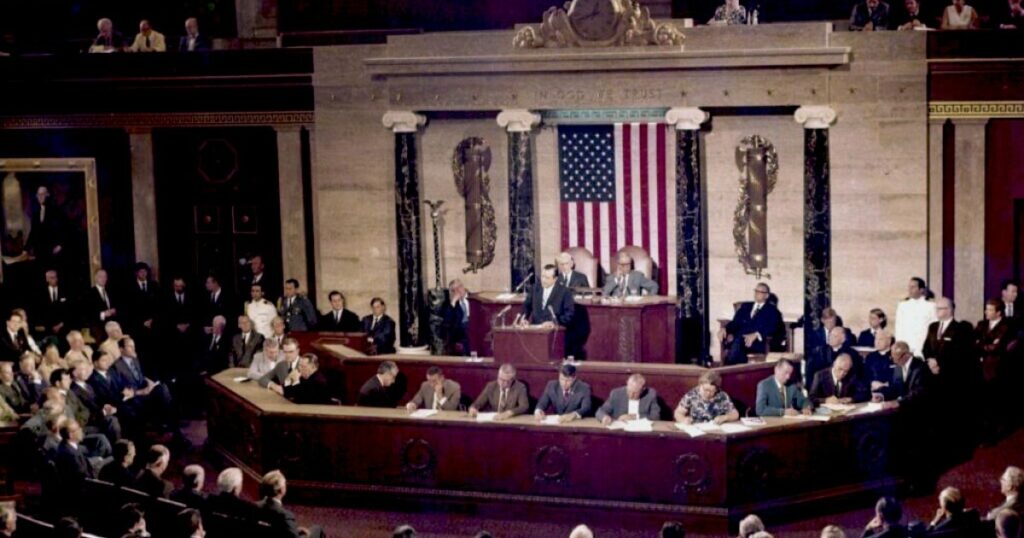As of July 28, Venezuela’s president-elect is not the strongman Nicolás Maduro, but the soft-spoken former diplomat Edmundo González Urrutia. But as the January 10 inauguration approaches, the election winner is living in exile in Spain to evade arrest and there is little hope he will be sworn in next month.
Inside Venezuela, the opposition is led by the charismatic conservative María Corina Machado, the winner of the opposition primary. After her disqualification by the regime-controlled Supreme Court, she campaigned vigorously for González and she has kept the flame lit during the post-election crackdown, using occasional rallies and frequent posts on X. But out of fear of arrest, she lives in hiding.
The grim scenario for the Venezuelan opposition has led to calls for a new round of US sanctions. Others advocate for negotiations over a potential power-sharing arrangement between Maduro and the opposition. The economist Francisco Rodríguez, for example, wrote about that approach in The New York Times, drawing comparisons to Poland’s transition to democracy in 1989 that followed negotiations between the ruling communist party and the popular Solidarity trade-union movement.
It is not clear, however, that the lessons from Poland apply to Venezuela. With few exceptions, Solidarity leaders had no prior political résumés; on the contrary, they described themselves as “anti-politicians” and promised to limit the scope of government. Moreover, it was the ruling communists who initiated the negotiations, and the United States played no role.
In other ways, the Polish transition is relevant to Venezuela, but as a cautionary tale. Solidarity’s route to power–through an agreement with the authoritarian government–led to resentment over what Jon Elster has described as a “bargain with the devil.” Indeed, that original sin is partly to blame for the consistently strong electoral performance of Poland’s populist hard-right, which refers to the 1989 power-sharing deal as “treason.”
Thirty-five years on from the collapse of the Soviet Bloc, the United States should learn the right lessons for Latin America. Should González or Machado form a partnership with Maduro, Interior Minister Diosdado Cabello, or the military chief, Vladimir Padrino López, it would be the founding stain of a post-Chavista Venezuela. Either way, the regime has shown no interest in such an arrangement.
Rather, the United States and its allies in the Venezuelan opposition should draw lessons from Venezuela’s own history, particularly the experiences of Hugo Chávez’s predecessor, former President Rafael Caldera.
The two-time president (1969-1974 and 1994-1999), who died in 2009, had a love-hate relationship with the United States, which he visited on multiple occasions, including in 1958, after the dictator Marcos Pérez Jiménez sent him into exile. For nearly a decade, Pérez Jiménez had bought the loyalty of elites using Venezuela’s booming petroleum income. He was deposed just a few weeks after Caldera’s exile to the United States. On the morning of the coup, Caldera was awakened by the Polish-born political operative Janusz Śleszyński, his host in suburban New York, told to dress quickly, and driven to a radio interview. He later returned to Caracas to launch a presidential campaign. He finished second, but his political movement, known as COPEI, became a guarantor of parliamentary stability and economic security.
Caldera was admired beyond Venezuela, as a leading figure in the global political movement known as Christian Democracy that had originated in Europe in the late 19th century. Caldera’s model for US-Venezuela partnership began with the support he received in New York in 1958, continued following John F. Kennedy’s election as the first Catholic US president, and blossomed throughout the 1960s. A four-time presidential candidate, he finally won the top job in 1968. By then, he had developed his political philosophy, progressive, but anti-communist, labor-friendly, but open to foreign investment, critical of US foreign economic policy, but open to US cooperation.
Machado in some respects has already followed in Caldera’s footsteps, forging coalitions across an ideologically diverse opposition that spans Marxists to neoliberals like herself. González firmly occupies the middle ground in this coalition, resembling Caldera in temperament and in convictions. Machado and González have both publicly affirmed their Catholicism, which informs how they understand both political ethics and the international system.
Should González eventually return to Venezuela, he will have the opportunity to build a durable, democratic political movement just as Caldera did, not through a backroom deal, but through principled leadership and sensible engagement with the United States.
Source link : http://www.bing.com/news/apiclick.aspx?ref=FexRss&aid=&tid=676a6c3b2ca94fecb7625f8521c85a92&url=https%3A%2F%2Fwww.wilsoncenter.org%2Farticle%2Fcaracas-not-warsaw-lessons-rafael-caldera-solving-venezuelas-political-crisis&c=6120503784499917165&mkt=en-us
Author :
Publish date : 2024-12-19 06:19:00
Copyright for syndicated content belongs to the linked Source.
